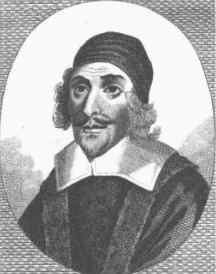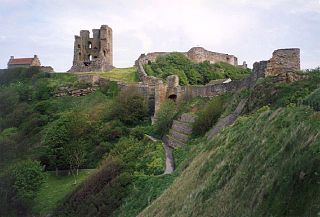Related Research Articles

The Stuart Restoration was the reinstatement in May 1660 of the Stuart monarchy in England, Scotland, and Ireland. It replaced the Commonwealth of England, established in January 1649 after the execution of Charles I, with his son Charles II.
Alice, Lady Lisle, commonly known as Alicia Lisle or Dame Alice Lyle, was a landed lady of the English county of Hampshire, who was executed for harbouring fugitives after the defeat of the Monmouth Rebellion at the Battle of Sedgemoor. While she seems to have leaned to Royalism, she combined this with a decided sympathy for religious dissent. She is known to history as Lady Lisle although she has no claim to the title; her husband was a member of the "Other House" created by Oliver Cromwell and "titles" deriving from that fact were often used after the Restoration.

Edmund Ludlow was an English parliamentarian, best known for his involvement in the execution of Charles I, and for his Memoirs, which were published posthumously in a rewritten form and which have become a major source for historians of the Wars of the Three Kingdoms. Ludlow was elected a Member of the Long Parliament and served in the Parliamentary armies during the English Civil Wars. After the establishment of the Commonwealth in 1649 he was made second-in-command of Parliament's forces in Ireland, before breaking with Oliver Cromwell over the establishment of the Protectorate. After the Restoration Ludlow went into exile in Switzerland, where he spent much of the rest of his life. Ludlow himself spelt his name Ludlowe.

Sir Hardress Waller was born in Kent and settled in Ireland during the 1630s. A first cousin of Parliamentarian general William Waller, he fought for Parliament in the Wars of the Three Kingdoms, becoming a leading member of the radical element within the New Model Army. In 1649, he signed the death warrant for the Execution of Charles I, and after the Stuart Restoration in 1660 was condemned to death as a regicide.

Thomas Scot was an English politician who sat in the House of Commons at various times between 1645 and 1660. He was one of the men who signed the death warrant of Charles I and was executed as one of the king's regicides.
John Venn was an English politician who sat in the House of Commons from 1641 to 1650. He was one of the regicides of King Charles I.
Colonel Sir Richard Ingoldsby was an English officer in the New Model Army during the English Civil War and a politician who sat in the House of Commons variously between 1647 and 1685. As a Commissioner (Judge) at the trial of King Charles I, he signed the king's death warrant but was one of the few regicides to be pardoned.
Sir Gregory Norton, 1st Baronet was an English politician who sat in the House of Commons from 1645 to 1652. He supported the Parliamentary cause in the English Civil War and was one of the regicides of King Charles I.
John Blakiston, was a member of the English parliament, one of the regicides of King Charles I of England, a prominent mercer and coal merchant, puritan and anti-Episcopalian.
Sir William Constable, 1st Baronet was an English soldier, politician and regicide, who supported the Parliamentary cause during the English Civil War and interregnum.

Sir Lislebone Long (1613–1659) was an English landowner and politician who was briefly Speaker of the House of Commons.
Edmund Harvey or Hervey (c.1601–1673) was an English soldier and member of Parliament during the English Civil War, who sat as a commissioner at the Trial of King Charles I and helped to draw up the final charge. Although present on 27 January 1649 when the death warrant was signed he did not add his signature.
Robert Wallop was an English politician who sat in the House of Commons at various times from 1621 to 1660. He supported the Parliamentary cause in the English Civil War and was one of the regicides of King Charles I of England.
Sir Henry Mildmay was an English politician who sat in the House of Commons at various times between 1621 and 1659. He supported the Parliamentarian cause in the English Civil War and was one of the Regicides of Charles I of England.
Vincent Potter (c.1614–1661) was an army officer in Parliament's army during the English Civil War and was one of the Regicides of King Charles I of England.
Anthony Stapley was one of the regicides of King Charles I of England.
Peter Temple was an English politician who sat in the House of Commons between 1645 and 1653. He was one of the regicides of King Charles I of England.
Sir Thomas Andrewes was a London financier who supported the parliamentary cause during the English Civil Wars, and sat as a commissioner at the High Court of Justice for the trial of Charles I. During the Third English Civil War, as Lord Mayor of London, he made sure that there was no trouble in London. During the Interregnum he supported Oliver Cromwell, and was knighted by him in 1657. Many sources confuse him with another Thomas Andrewes, who had a more prominent role in the British East India Company and was a contemporary of the London politician; this other Andrewes was still alive in 1660.

Michael Warton was an English politician who sat in the House of Commons between 1640 and 1644. He fought and died on the Royalist side in the English Civil War.
William Owfield was an English landowner and politician who sat in the House of Commons in 1645.
References
- 1 2 Mark Noble (1798). The Lives of the English Regicides: And Other Commissioners of the Pretended High Court of Justice, Appointed to Sit in Judgement Upon Their Sovereign, King Charles the First, Volume 2. J Stockdale. p. 97. Retrieved 15 April 2019.
- 1 2 The History of Brigg Grammar School